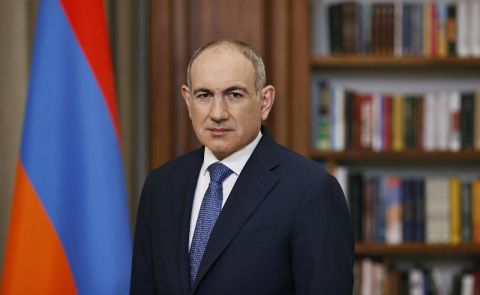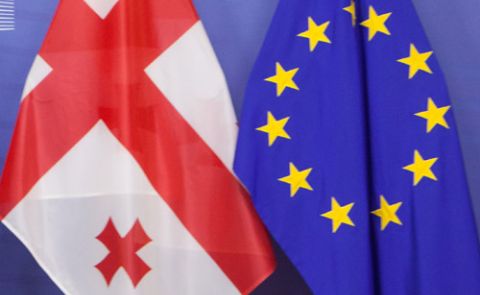
International reaction and comments from Armenia and Azerbaijan regarding recent meeting between Aliyev and Pashinyan in Brussels
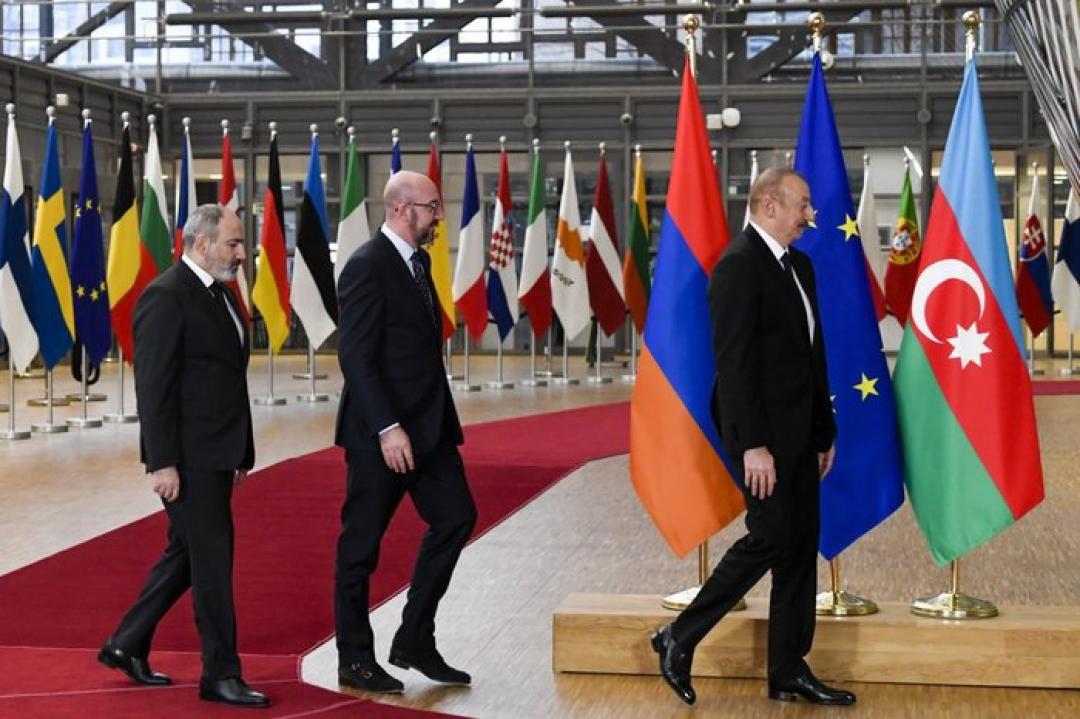
International reactions
The OSCE has welcomed the meeting between Azerbaijani President Ilham Aliyev and Armenian Prime Minister Nikol Pashinyan in Brussels on May 22. "Direct dialogue is a necessary condition for the normalisation of relations and the preparation of a comprehensive peace agreement. We remain ready to contribute to efforts to ensure peace and prosperity in the South Caucasus," the organisation said.
High Representative of the EU for Foreign Affairs and Security Policy Josep Borrell welcomed the results of the trilateral meeting between President of Azerbaijan Ilham Aliyev, Armenian Prime Minister Nikol Pashinyan, and President of the EU Council Charles Michel held on May 22 in Brussels. We are “hopeful to see concrete steps that support dynamics towards sustainable peace. The EU continues to be strongly engaged in peace & reconciliation efforts in the region,” Borrell said.
The US State Department welcomed ongoing bilateral talks between Armenia and Azerbaijan before a key meeting geared toward the establishment of peace in the South Caucasus. “We remain committed to promoting a peaceful, democratic and prosperous future for the South Caucasus region,” State Department spokesman Ned Price told reporters on a conference call. “As part of that, we do urge this dialogue to continue, and for the parties to intensify their diplomatic engagements, to make use of existing mechanisms for direct engagement in an effort to find comprehensive solutions to all outstanding issues related to or resulting from the Nagorno-Karabakh conflict and, to normalise their relations,” he added. The US remains ready to assist Yerevan and Baku in the efforts, added Price.
Domestic reactions
The outcome of the trilateral meeting of President of the Republic of Azerbaijan Ilham Aliyev, President of the European Council Charles Michel, and Prime Minister of the Republic of Armenia Nikol Pashinyan in Brussels should be considered as significant progress in the peace process, Deputy Director General of Trend News Agency Sahil Karimli stated. The meeting has confirmed the utmost importance of the five principles laid out by Azerbaijan for peace negotiations, said the political expert. "During the meeting, the expression ‘Nagorno-Karabakh’ was not used, the issue of status wasn't on the agenda either. The relevant negotiation format has fully met the national interests of Azerbaijan. As the country’s president has repeatedly emphasized, there is no administrative territorial unit called Nagorno-Karabakh in Azerbaijan. The whole world had to recognise new realities in South Caucasus established after Azerbaijan’s… victory in the 44-day second Karabakh war," Karimli said. “The talks also addressed the de-mining operations in Azerbaijan’s liberated territories and the fate of the missing. The country's liberated lands are being promptly cleared of mines in such difficult conditions. The fate of hundreds of Azerbaijanis who were captured or missing during the first Karabakh war remains a priority issue, and Armenia must fulfil its obligations in this regard,” he stated.
Avo Piroyan, an Armenian freelance journalist based in London said that “if Azerbaijan resolves its conflict with Armenia, Aliyev removes one of the central pillars of his authority and justification of power. The boost in popularity he got following the 2020 victory will fade and if the wider conflict with Armenia is solved then the full focus of the Azeri public will shift to their socioeconomic situation. With the above in mind, the Armenian leadership’s rush towards a peace treaty seems questionable. Not because a peace treaty is necessarily a bad idea but because it is highly unlikely to bring a lasting peace and will only move the line of conflict in Azerbaijan’s favour. Armenia’s policy of concessions to Azerbaijan is dangerously like that of the bird. Armenia has already conceded on several separate occasions to Azerbaijan, albeit at gunpoint, but the list of demands on Armenia has not lessened," Piroyan added. According to the expert, the Armenian government’s hopes appear to be placed on international guarantees from the European Union and others for the security of Armenians in Nagorno-Karabakh who will find themselves under Azerbaijani jurisdiction. However, without military force to back these guarantees, they are toothless. Pretexts and justifications for escalations are easily found or even created irrespective of agreements. "The Armenian side could also actively push and advocate for western (EU/US) sanctions against Azerbaijan’s ruling elite for its large-scale violations of human rights against its own people and international humanitarian law during the war in 2020. Whether they succeed or not, it will put the Azeri side on the defensive in this regard and likely temper down the scale and rate of their provocations. These things will not solve Armenia’s security issues, but they will prevent a rapid deterioration of the situation. Fundamentally though, the above suggestions are delaying tactics designed to give Armenia time to strengthen itself internationally, militarily, and economically," Piroyan concluded.
Farhad Mammadov, an Azerbaijani political scientist and expert of the Valdai International Discussion Club flagged that in general, "Michel's text contained a proposal about 'the rights and freedoms of the Armenian population of Karabakh'… One of them appeared, however, not as a point of negotiations, but as an appeal by Michel himself. "It is important here that 'the rights and security of the Armenians of Karabakh' are also about the reintegration mechanisms that Baku prepared but did not announce. It seems that all this will become relevant after a peace treaty is signed with the removal of territorial claims from Armenia and the solution of the issue of control over the Lachin corridor. About the last one in the unlocking point," he added.
Mammadov said, "note the wording:
- Karabakh, not 'Nagorno-Karabakh' – important for symbolism and linguistic content.
- the population, not the 'people' – this is important, the population should have rights and security even without status. Although, perhaps, 'status' will be promoted as a mechanism for ensuring law and security. Here again, we remind you that the statement notes that this is Michel's call and not a decision!
Humanitarian issues in a complete package: the release of saboteurs, demining, and the fate of the missing. Looks like UNESCO was beaten…. Communications unblocking: Lots of words, but no confirmation of the principle [in] Michel's statement in December that states retain sovereignty over communications. It remains a mystery what they agreed on: on the 'unhindered Zangezur corridor for Azerbaijan or on the control of Armenia in Zangezur and Azerbaijan in the Lachin corridors,'" he said.
"So far, the majority of Armenians support Pashinyan. It has legitimacy and the Armenian people trust it," said Stepan Grigoryan, an Armenian political scientist and the head of the Analytical Center for Globalization and Regional Cooperation. According to him, no one wants to fight in Armenia today, people want peace and stability. "But the [Nagorno]-Karabakh issue is a painful issue for the Armenians. then even his supporters will turn away from him." The analyst noted that Pashinyan's rhetoric is based on…Kocharyan and Sargsyan's [accusations]. "Nikol blames Armenia's weakness in the Second Karabakh War [on what happened] during their rule. It is incorrect to say that all of Pashinyan's rivals are only supporters of the old elite. Today, there are those in the opposition who considered themselves out of politics a year and a half ago. For example, the parents of soldiers killed in the 44-day war are in opposition. In addition, there are new political movements and students that are not associated with former leaders. At the same time, people who are not in parties and are not indifferent to the process are becoming more active," Grigoryan said. The political scientist noted that the demand for normalisation of relations with neighbours comes directly from the majority of Armenian society. "People understand that the status quo in the South Caucasus has changed after the Second Karabakh War. We are not in a position to demand much now. Therefore, people in Armenian society already have a vision for the normalisation of relations. And people already understand that the Armenian opposition cannot prevent the signing of a peace agreement. If it continues, it will lower the prime minister's rating and he will lose his post. As a result, politicians who are not interested in peace will come to power, and the peace agreement will be forgotten for a long time."
After Azerbaijani President Ilham Aliyev and Armenian Prime Minister Nikol Pashinyan's meeting on the initiative of EU Council President Charles Michel, both Azerbaijani and Armenian Foreign Ministers met with their Russian counterpart Sergei Lavrov, Azerbaijani President with his Turkish counterpart Recep Tayyip Erdoğan and Armenian Prime Minister Nikol Pashinyan.
"They exchanged views on the details of the meeting in Brussels. This is a message to Moscow that there are three powers in the South Caucasus - Turkey, the European Union, and the United States," said Elkhan Shahinoglu, an expert at the Atlas Research Center. "The third meeting between Azerbaijani President Ilham Aliyev and Armenian Prime Minister Nikol Pashinyan in Brussels, mediated by EU Council President Charles Michel, was repeated. The importance of opening borders and communication lines and accelerating work on a peace agreement was reiterated. Michelle's final statement caught my attention with a few new details. First, Charles Michel stressed the importance of resolving the issue of the rights and security of the ethnic Armenian population in Karabakh. This is probably a message to Azerbaijan that official Baku must offer the Armenians something to address their legal and security issues. Charles Michel also wants to calm down Nikol Pashinyan and neutralise the pressure of the radical opposition against him… The radical opposition is putting pressure on Pashinyan because the prime minister has 'forgotten' Karabakh. Pashinyan, referring to the results of the Brussels meeting, said that the legal and security issues of the Karabakh Armenians were included in the final statement. As for us, if the Armenians of Karabakh live by the laws of Azerbaijan, give up separatism and carry our passports, they can have municipalities and other similar rights. Second, Charles Michel said that the European Union will develop the work of the Economic Advisory Group, which seeks to promote economic development for the benefit of both countries and their peoples. Charles Michel did not explain in his next sentences what this mechanism would consist of and how it would work. However… the President of the Council of the European Union said that Brussels is interested in economic cooperation with Baku and Yerevan within the framework of the tripartite economic mechanism, but for this the peace agreement should be signed between the two countries. We are ready for this, as long as Armenia recognises the borders of Azerbaijan, signs a peace agreement and creates conditions for the operation of communication lines with the opening of the corridor,” he noted.
Benjamin Poghosyan, executive director of the Armenian Political Science Association, said, "the restoration of communications is another tricky issue. The work started in early 2021, as Armenia, Azerbaijan, and Russia established a trilateral commission led by deputy prime ministers. Again, all agreed timetables were breached, and no commission meeting took place after December 2021. The sides presumably agreed on the railroad route – Azerbaijan-Armenia (Syunik)-Nakhchivan, Armenia-Nakhchivan-Iran, Armenia-Azerbaijan-Russia. During several meetings held in Brussels and Moscow, statements have been made that the sides also agreed on border control, customs fee, transit procedures, and other issues. However, immediately after every meeting, Armenia and Azerbaijan interpreted the results differently. Azerbaijan speaks about the agreement to open the 'Zangezur corridor,' meaning no Armenian border and customs control for Azerbaijani persons and goods passing through Syunik. Otherwise, Azerbaijan demands establishing border and customs control in the Lachin corridor, which connects Armenia and Nagorno-Karabakh and is currently controlled by Russian peacekeepers. Armenia rejects these ideas and claims that the Azerbaijan-Nakhichevan connection via Armenia has nothing to do with the Lachin corridor and that Armenia will implement border and customs control. The same contradictions also appeared after the May 22 meeting. President Aliyev told President Erdoğan that an agreement was reached in Brussels to establish the 'Zangezur corridor.' At the same time, the secretary of the Armenian security council stated that Armenia never discussed anything within corridor logic. However, it seems that the Armenian government has changed its position and is ready to recognise Nagorno-Karabakh as part of Azerbaijan if Azerbaijan protects the rights of the Armenian population. The Armenian Prime Minister hinted at this during his press conferences in December 2021 and January 2022 and during his speech in Parliament on April 13, 2022. The western partners welcomed this change of attitude of the Armenian government, viewing it as a possibility to finally settle the Karabakh conflict and bring long-term stability to the region. The quest for peace and stability is not the only motive behind the West’s positive attitude toward the change in the Armenian government’s approach. The west believes that if Armenia and Azerbaijan agree on the status of Nagorno-Karabakh, Azerbaijan may demand the withdrawal of Russian peacekeepers from Karabakh after November 2025," he added.
See Also

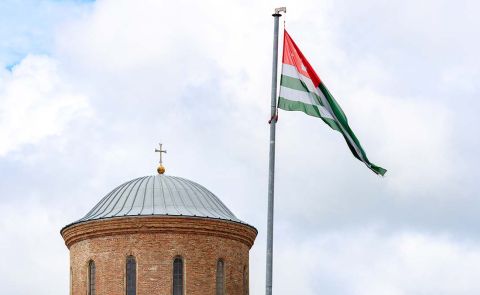
Moscow’s Plan in Separatist Abkhazia Focuses on Naval Logistics, Not Base Establishment
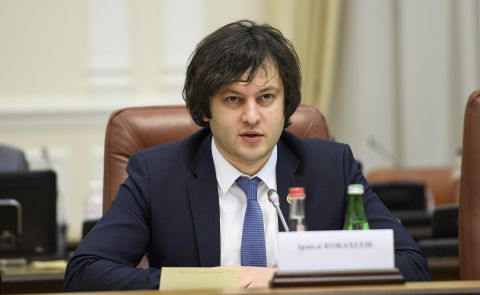
Kobakhidze Announces Full Enforcement of Georgia’s Foreign Agents Law
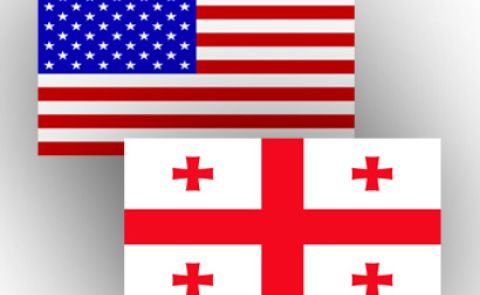
Kobakhidze Meets US Senator Daines to Discuss Bilateral Relations
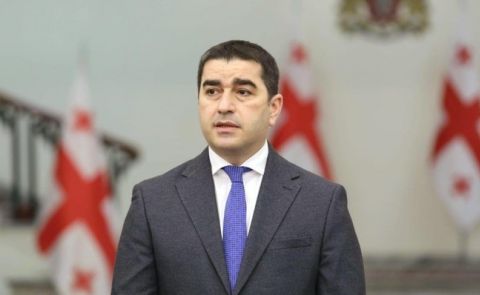
Georgian Speaker Condemns Embassy Travel Warnings as Economic Attack
